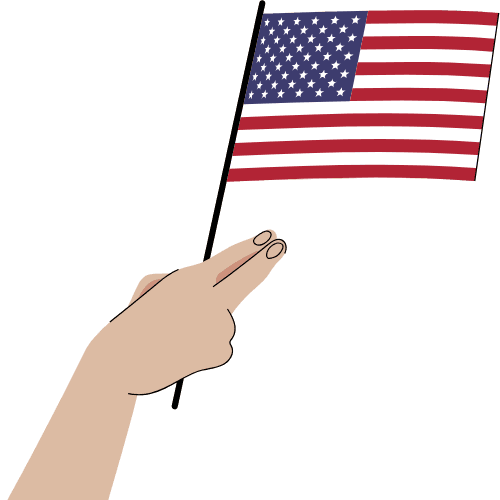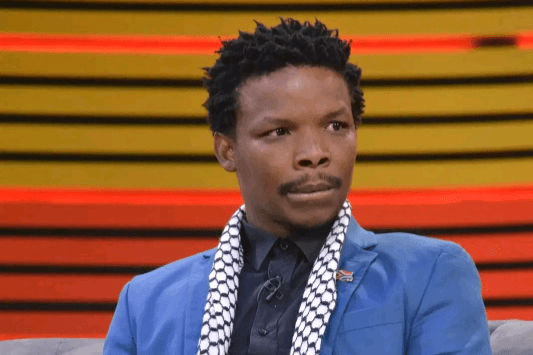An Unsettling Call: When Seeking Safety Becomes a Crime in the Eyes of Some

Refuge For Afrikaners
6/11/2025

The recent pronouncements by Mayibuye Mandela, great-grandson of Nelson Mandela, have sent a chilling wave through the Afrikaner community and, indeed, anyone who believes in the fundamental right to seek safety and a better future. His call for the South African government to pursue legal action against 49 Afrikaners who sought and were granted refugee status in the US is not just alarming; it's a profound misunderstanding of the realities faced by many in our community and a disturbing attempt to criminalize their plight.
Let's be clear: the decision to uproot one's life, leave behind heritage, family, and все (everything) you know, is never taken lightly. It is a decision born out of deep concern, often desperation, and a yearning for security and a future for one's children. For Mr. Mandela to assert that these individuals "falsely claimed refugee status while fabricating a narrative of white genocide" is a sweeping and dismissive accusation.
While the term "genocide" is a highly specific and legally charged one, and one that organizations like Solidarity explicitly state they do not use for the current situation, it is undeniable that many Afrikaners experience a profound sense of unease and persecution. As Jaco Kleynhans from Solidarity rightly points out, there is evidence of "serious cultural and economic oppression of minorities," amounting to a "general cultural persecution that is beginning to take on dangerous levels and could lead to life-threatening threats in the future."
Are these concerns to be simply brushed aside?
Violent Crime: The horrific levels of violent crime, including the disproportionate and brutal farm attacks, are a daily reality that cannot be ignored. While President Ramaphosa told President Trump that the majority of crime victims are Black, this does not negate the specific terror and vulnerability experienced by farming communities and other Afrikaners.
Discrimination: Many Afrikaners feel systematically excluded and marginalized by policies that limit their economic opportunities and cultural expression.
Hostile Rhetoric: Inflammatory rhetoric, often unaddressed or even stoked by political figures, contributes to an environment of fear and uncertainty.
Mr. Mandela's suggestion that these Afrikaners' actions constitute offences under various South African acts, including the Protection of Constitutional Democracy Against Terrorist and Related Activities Act, is particularly egregious. Seeking refuge is not terrorism. Voicing concerns about one's safety and future is not an attempt to "destabilise our country and incite international hostility." It is a cry for help, a plea for understanding.
The US government, under its own sovereign laws and assessments, deemed these individuals eligible for refugee status. It is their prerogative. To suggest that the South African government should now retroactively punish its citizens for availing themselves of a lifeline offered by another nation is a dangerous path.
Furthermore, Mr. Mandela's targeting of AfriForum and Solidarity, accusing them of "orchestrating and promoting this false narrative," is an attempt to silence organizations that advocate for minority rights and shed light on uncomfortable truths. The confirmation of a government investigation into these groups for "treason" for engaging with the US government is profoundly worrying. In a democracy, should dialogue and advocacy, even with international bodies, be equated with betraying one's country?
Instead of attacking those who feel compelled to leave, or the organizations that voice their concerns, perhaps Mr. Mayibuye Mandela and the South African government should engage in a "serious conversation," as Mr. Kleynhans suggests. A conversation about the root causes of this unease: the discrimination, the crime, the erosion of cultural space, and what genuine steps can be taken to make all South Africans, including Afrikaners, feel safe, valued, and secure in the land of their birth.
Threatening legal action against those who have already endured so much is not the answer. It only serves to deepen divisions and validate the fears that drove them to seek refuge in the first place. At Refuge for Afrikaners, we stand by the right of Afrikaners to seek safety and a secure future, wherever that may be, and we call for empathy and understanding, not persecution.
Stay Updated on news about President Trump's Executive Order on Addressing Egregious Actions of the Republic of South Africa
Subscribe to our newsletter for the latest resources and community updates.